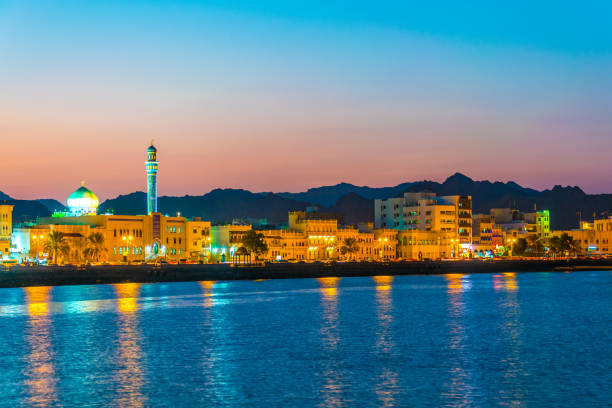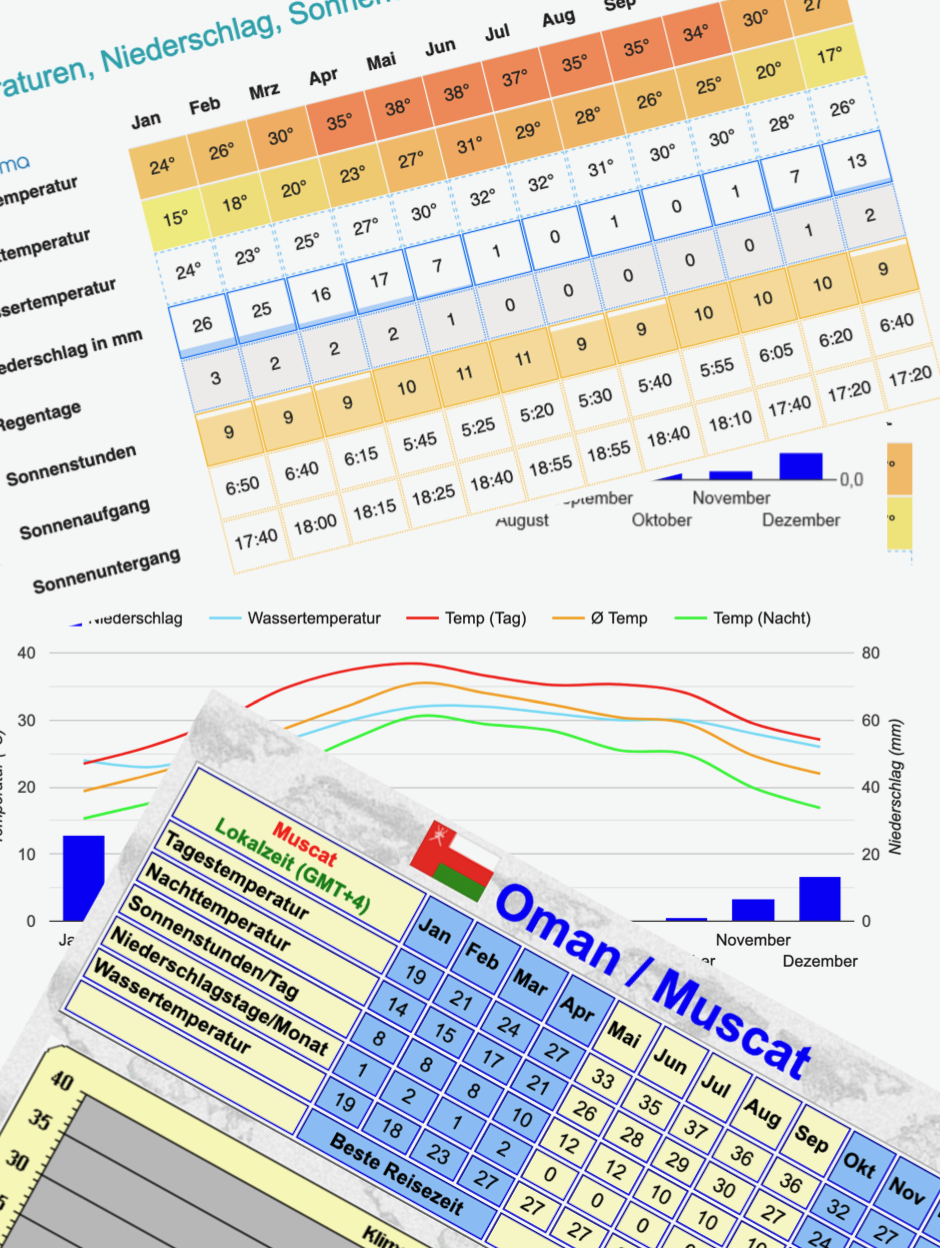Although there is a peak season for travel to Oman, it is also possible to plan a holiday in Oman all year round. However, the routes and places or activities are likely to vary depending on the time of year.
In winter, the whole country is easily accessible. In the high mountains, however, one must expect shallow temperatures. There can even be snowfall and ice formation, making driving difficult on the often unpaved and sometimes steep roads. On the coast and in the desert, temperatures are very pleasant. However, there can sometimes be very heavy rainfall. Then you should drive especially carefully because it is not always possible to see how deep the water is on the road. Sometimes a road is impassable. Especially in the wadis you have to be careful when it rains. The rainwater catchment area of some wadis is huge. It can happen that the rain has not yet reached the wadi itself, but water from other regions has already reached the wadi through waterfalls. Then the water level can quickly reach dangerous levels. It is generally not advisable to enter Wadis when rainfall is imminent.

Summer is particularly interesting for divers, who then have good chances of swimming with whale sharks at the Daymaniyat Islands. However, the north of Oman is quite hot during this time (up to 50°C) and makes traveling arduous. Many desert camps are closed. In the mountains and in the south, however, it is quite bearable. In the mountains, you can experience the rose harvest in April/May or take advantage of the pleasant temperatures to go hiking. In the south, the season of the Khareef, the monsoon season with low temperatures, constant rain and fog, and wild seas is the time when it is green everywhere, waterfalls tumble down the mountains, and swimming in the sea is often prohibited for safety reasons. In July/August, you can expect to encounter a lot of tourists from the Arabian Peninsula, desert dwellers for whom the rainy season is extremely attractive because they cannot experience this weather and lush greenery anywhere else in the Middle East.

